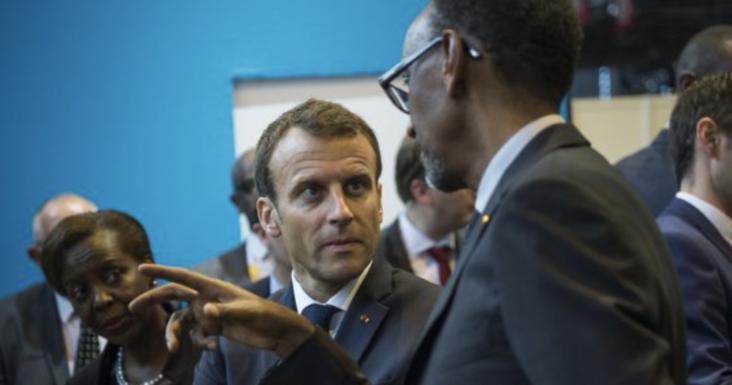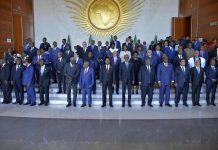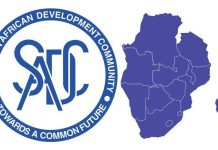Africa-Press – Lesotho. The French presidency, which is hosting the summit on financing African economies on 18 May, is at the forefront of a shift in discourse on the continent. But its approach still has blind spots, says economist Carlos Lopes.
There is no doubt that Emmanuel Macron is energetic in his approach to ‘the fundamentals’ of the relationship between France and its former African colonies.
This new dynamic, characterised by the desire to change certain practices that marked the ‘Françafrique’, calls for particularly getting beyond the idea of traditional French ‘hunting grounds’ to embrace the whole continent. The less attentive will be forgiven for getting lost, as there are so many open fronts.
From the debate on the return of art objects, to structured exchanges with ‘rebel’ African thinkers; from the opening of archives on sensitive subjects (such as the death of Thomas Sankara), to the study commission on the Tutsi genocide in Rwanda and the memory of the Algerian war.
In addition, there is the African green wall, health, digital revolution, reform of the CFA franc and finally, the increased role of Paris in the fight against jihadism in the Sahel…
What will be added to this long list is the next summit dedicated to the financing of African countries and scheduled for 18 May in the French capital.
The good France is at the forefront of a change in discourse on the continent. This is because of its insistence that Africa must be treated as a common geopolitical entity while taking into account its diversity.
The French Development Agency (AFD) has thus ripped up the country’s common practise of dividing the continent into ‘Sub-Saharan Africa’ and North Africa.
Paris’s handling of the conflicts in Libya and the recent succession dilemmas in Chad demonstrate a pragmatic and – therefore – refreshing understanding of intra-African dynamics.
US leadership under President Trump’s administration has ended almost all debates on global public goods, leaving the field open to other actors. France has taken advantage of this space with enthusiasm.
The organisation of the Paris Climate Summit provided a good initial platform. Then, France got involved in key multilateral issues such as trade impasses, taxation of tech giants or, more recently, challenging vaccine nationalism.
China and a range of new players were also present, but President Macron’s communicative skills often allowed him to steal the show. The fierce debate on how to deal with African sovereign debt has created another boulevard for France within the G7 and even the G20.
It was Paris that first proposed an overhaul of the current approach, including through the elimination of African debt rather than its relief and through immediate access to unused International Monetary Fund (IMF) Special Drawing Rights (SDRs) to make African economies more liquid.
Pressure on French champions to reassess investment opportunities in Africa and mobilising the diaspora to engage more in entrepreneurship on the continent are also commendable actions; as is the increase in development aid allocations. The not so good But old habits die hard.
Although the growth of French foreign direct investment (FDI) in Africa has been remarkable over the past five years (it increased tenfold in value between 2000 and 2017 according to the Treasury), this boom has benefited too few sectors of the future.
Most of the FDI remains destined for fossil fuels (47% of the French FDI stock in Africa in 2017) and the traditional trade in raw materials. The implementation of the European Green Deal could have a negative impact on Africa’s structural transformation process.
” Within the World Trade Organisation (WTO), the Doha Development Round is stalled and France, among other countries, is not willing to revive it.
Worse, the implementation of the European Green Deal could have a negative impact on Africa’s structural transformation process. The one-sided tone of the current discussions on new rules for greener trade does not bode well.
It is reminiscent of the tone used during the negotiations of previous Economic Partnership Agreements (EPAs), which led Africans to accept conditions that were unfavourable to them under pressure from the European Union (EU).
Faced with this vexing subject, which will be decisive for the post-Covid-19 recovery, France is turning its head away. If the forthcoming summit on financing is described by Emmanuel Macron as a ‘New Deal’, in reference to the famous stimulus policies of US President Roosevelt, there are reasons to doubt that its impact will be extraordinary.
Far from being a first, this plan follows a series of others – including Chancellor Angela Merkel’s Marshall Plan and European Commission President Jean-Claude Juncker’s – with no real progress on the Sustainable Development Goals, key one of which is eradication of poverty by 2030.
Needless to say, the gap between these high-profile proclamations and the reality on the ground has become so glaring that cynicism has set in. And it will be no different this time. The dangerous
To this pitfall, we must add two blind spots in Emmanuel Macron’s approach, flaws that risk marring his African record in the same way that the Dakar speech and direct involvement in Libya marked President Sarkozy’s term in office.
Two facts on which the current French head of state must reflect. On the one hand, his views on African demography reflect a Malthusian fear of a population increase that would be responsible for the continent’s poor performance.
On the other hand, some of its positions reflect its tendency to over-interpret what Africans need or prioritise. The fight against Covid-19 is an example of this tendency. Admittedly, Paris, which was opposed to the patent waiver (as were most Western countries), recently changed its mind, following the US reversal.
But French diplomacy continues to favour distribution and exports to developing countries over patent release, arguing that the real problem is global vaccine production capacity. This is an inaccurate reading, and one that favours the cyclical over the structural. As the saying goes, thirst cannot be quenched by proxy.
For More News And Analysis About Lesotho Follow Africa-Press






